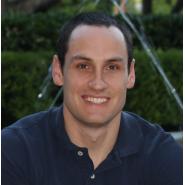非常抱歉,
你要访问的页面不存在,
非常抱歉,
你要访问的页面不存在,
非常抱歉,
你要访问的页面不存在,
验证码:

职称:Assistant Professor
所属学校:University of Chicago
所属院系:chemistry
所属专业:Chemistry, General
联系方式:(773) 702-9025
The Anderson Lab is a group of synthetic inorganic chemists. While our research is centered around transition metal chemistry, we find substantial overlap and applicability through interdisciplinary research in a variety of other fields, including but not limited to organic chemistry, spectroscopy, materials chemistry, and biology. Students in the lab will be trained in a variety of synthetic techniques particularly those related to the isolation and handling of air-sensitive complexes and materials. Furthermore, students will gain expertise in the acquisition and interpretation of common analytical methods such as NMR, UV-Vis, and IR spectroscopies, as well utilizing more advanced data acquired from EPR, XAS, or magnetometry. At the heart of our research lies the interplay between natural and synthetic systems. We aim to utilize well defined synthetic complexes and materials with two main goals. Firstly we aim to use isolable complexes as models for biological systems, notably as tools to try and understand some of the fundamental properties that govern enzymatic transformations. Secondly, we are utilizing principles employed by biological systems to develop challenging reactivity or properties in complexes or materials. Such themes are careful control of spin-state, bi-functional activation of substrates, and the utilization of redox active scaffolds to mediate reactivity and coupling. For more information on these research projects, please visit the Anderson Lab website.
The Anderson Lab is a group of synthetic inorganic chemists. While our research is centered around transition metal chemistry, we find substantial overlap and applicability through interdisciplinary research in a variety of other fields, including but not limited to organic chemistry, spectroscopy, materials chemistry, and biology. Students in the lab will be trained in a variety of synthetic techniques particularly those related to the isolation and handling of air-sensitive complexes and materials. Furthermore, students will gain expertise in the acquisition and interpretation of common analytical methods such as NMR, UV-Vis, and IR spectroscopies, as well utilizing more advanced data acquired from EPR, XAS, or magnetometry. At the heart of our research lies the interplay between natural and synthetic systems. We aim to utilize well defined synthetic complexes and materials with two main goals. Firstly we aim to use isolable complexes as models for biological systems, notably as tools to try and understand some of the fundamental properties that govern enzymatic transformations. Secondly, we are utilizing principles employed by biological systems to develop challenging reactivity or properties in complexes or materials. Such themes are careful control of spin-state, bi-functional activation of substrates, and the utilization of redox active scaffolds to mediate reactivity and coupling. For more information on these research projects, please visit the Anderson Lab website.